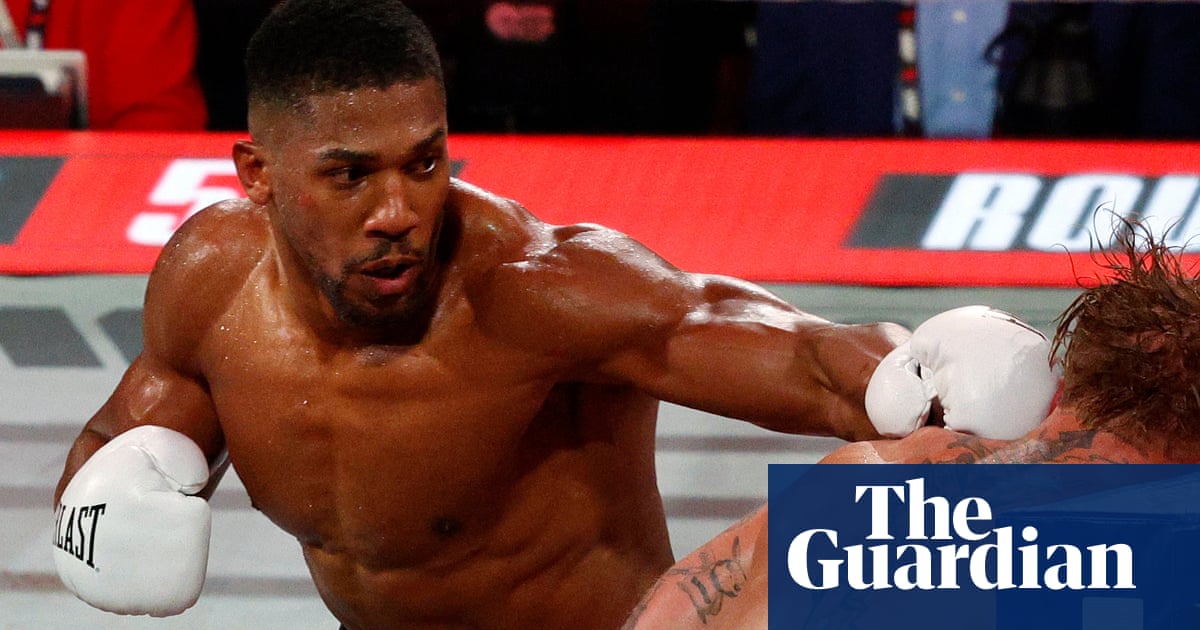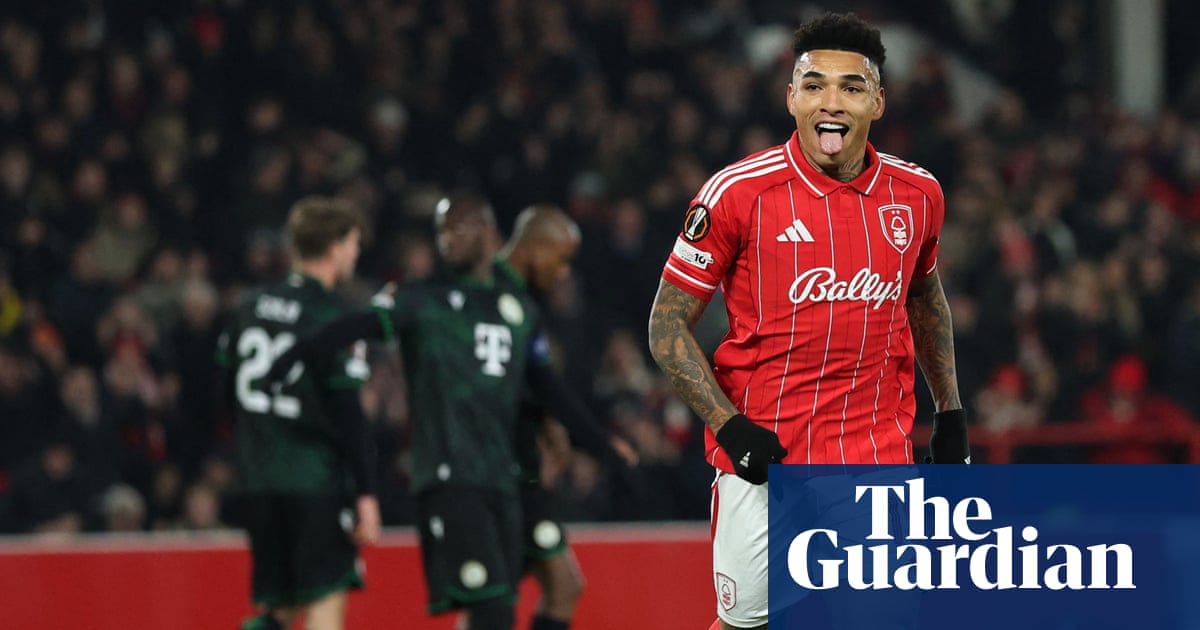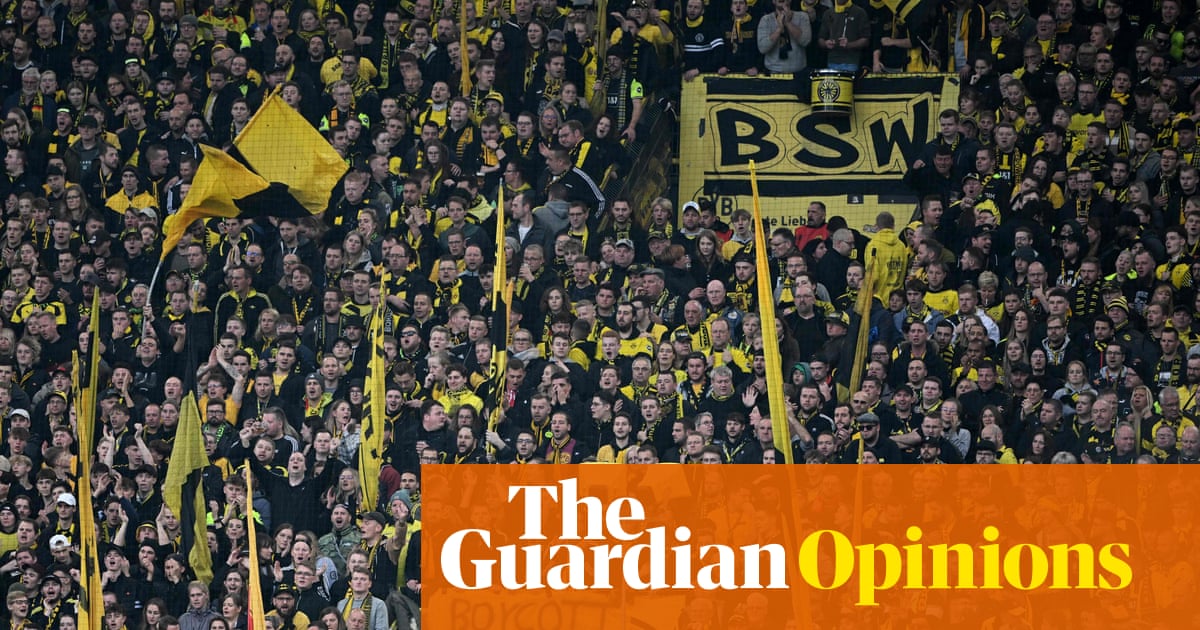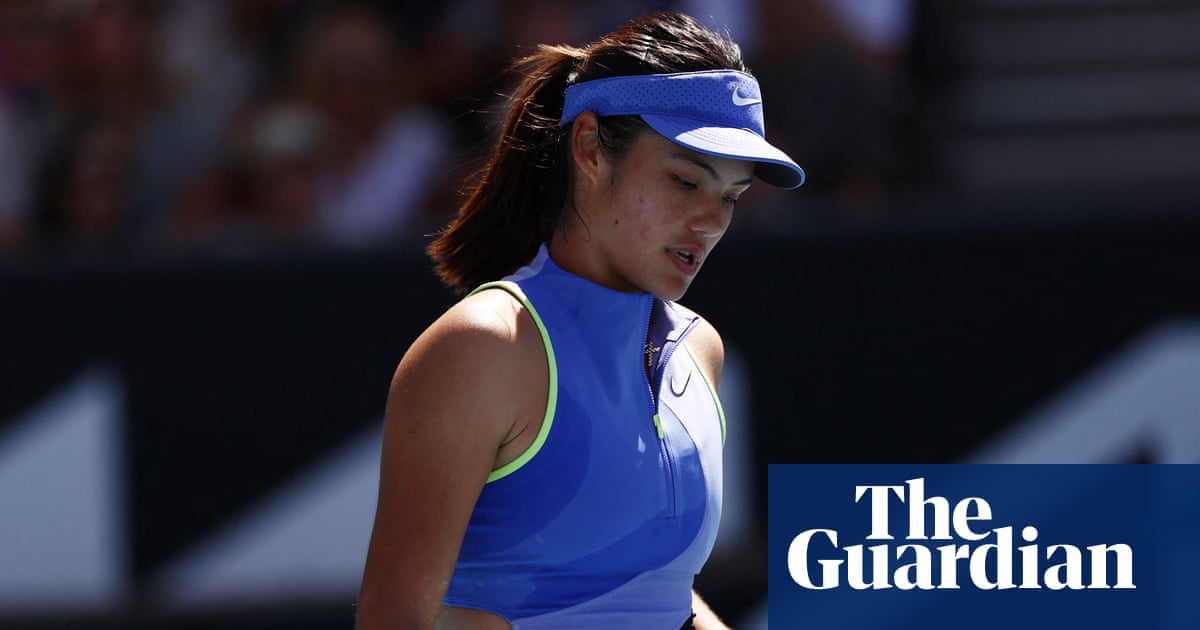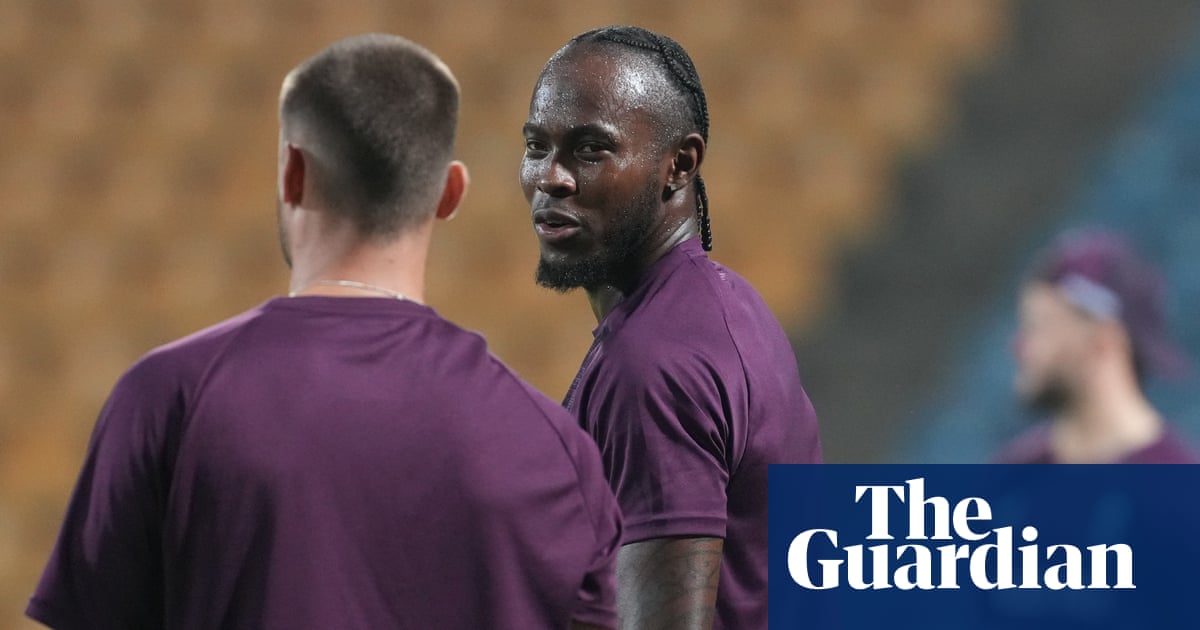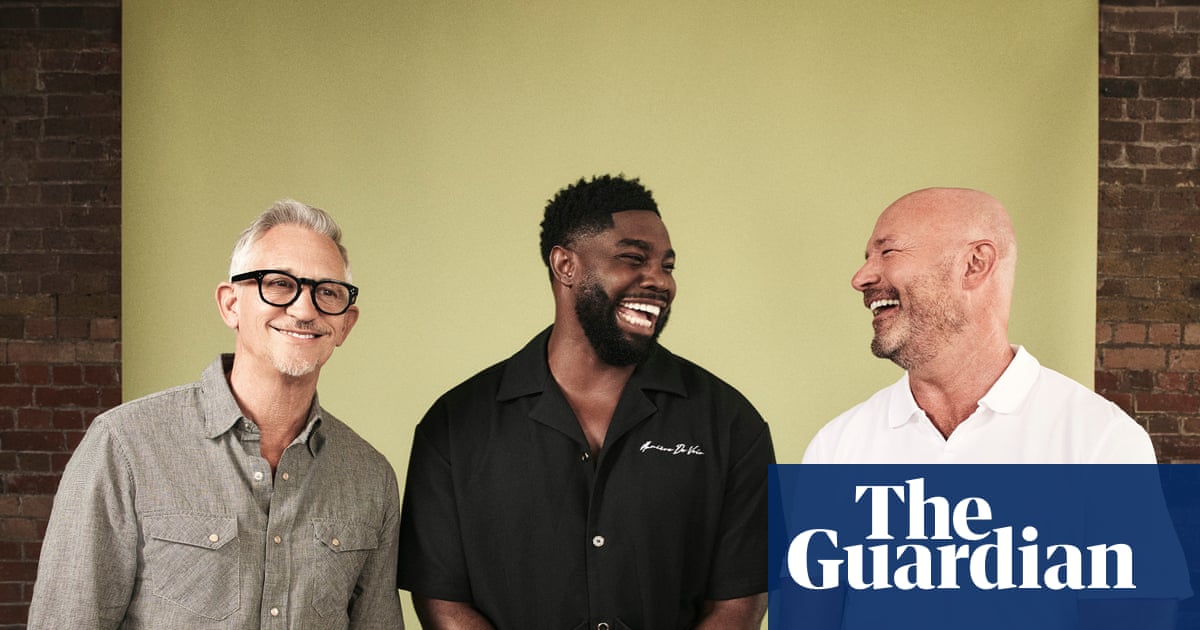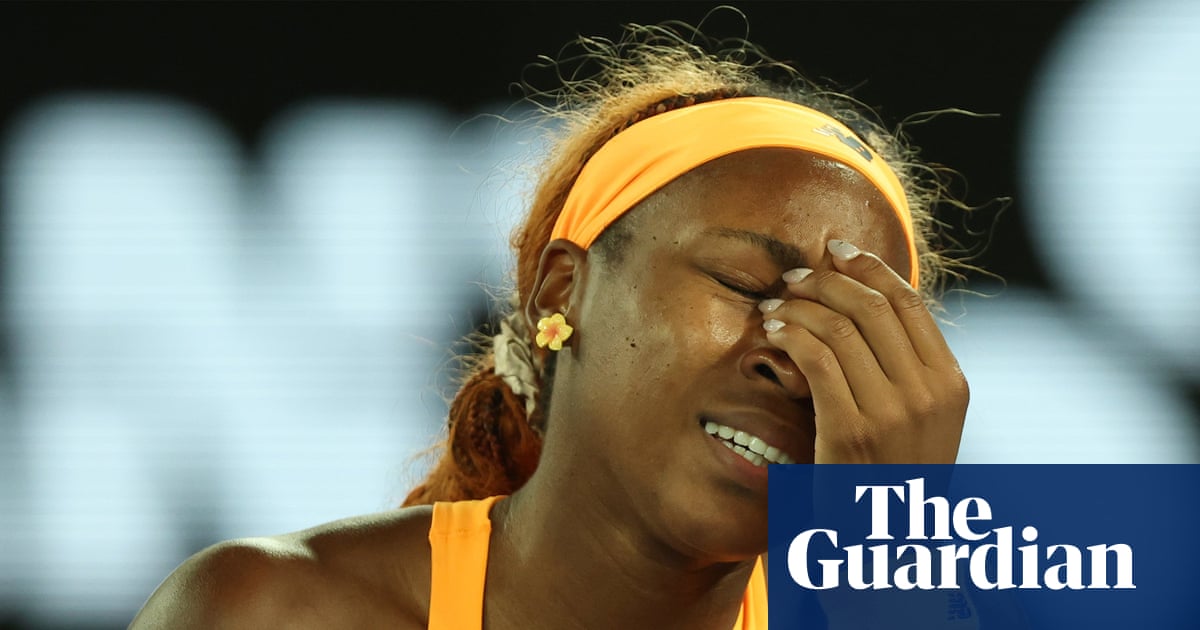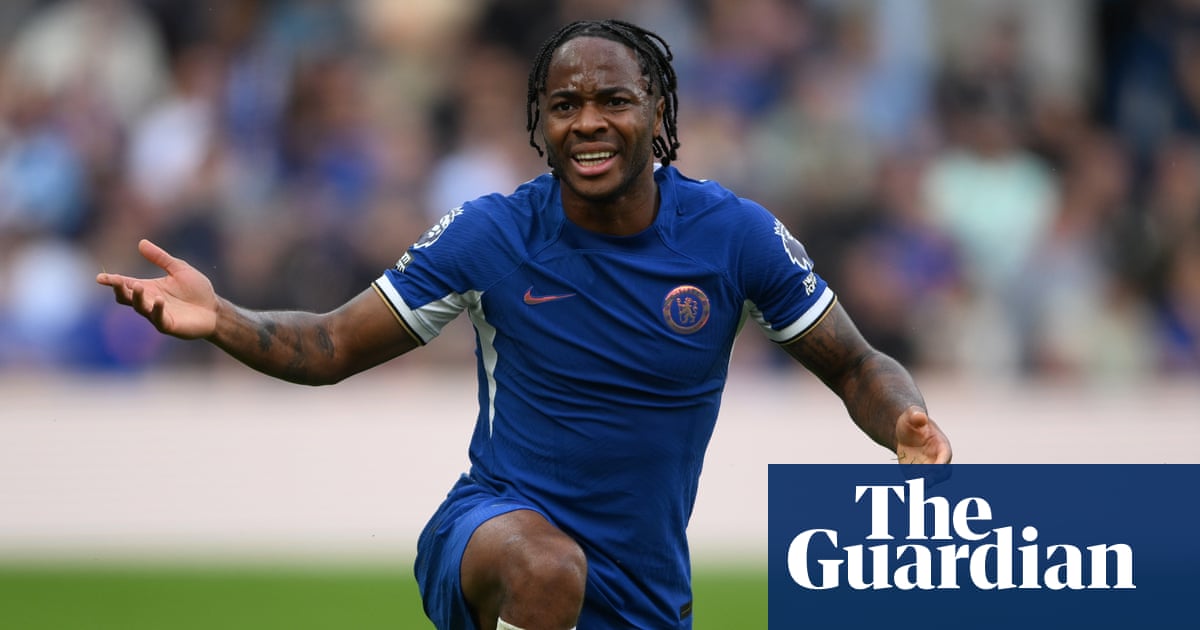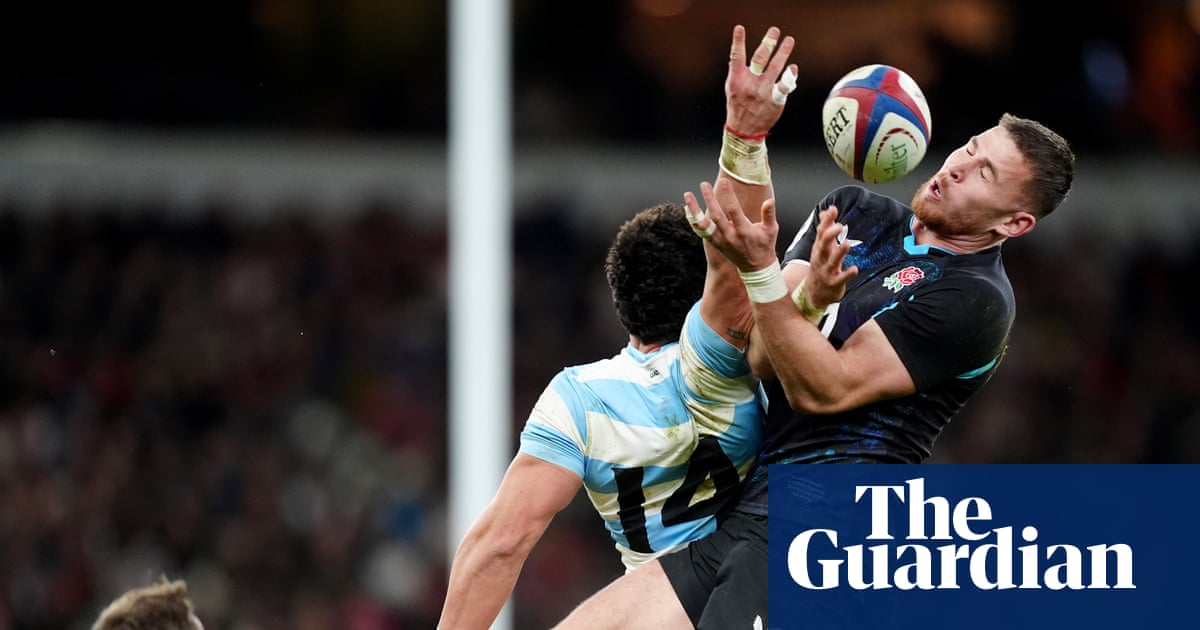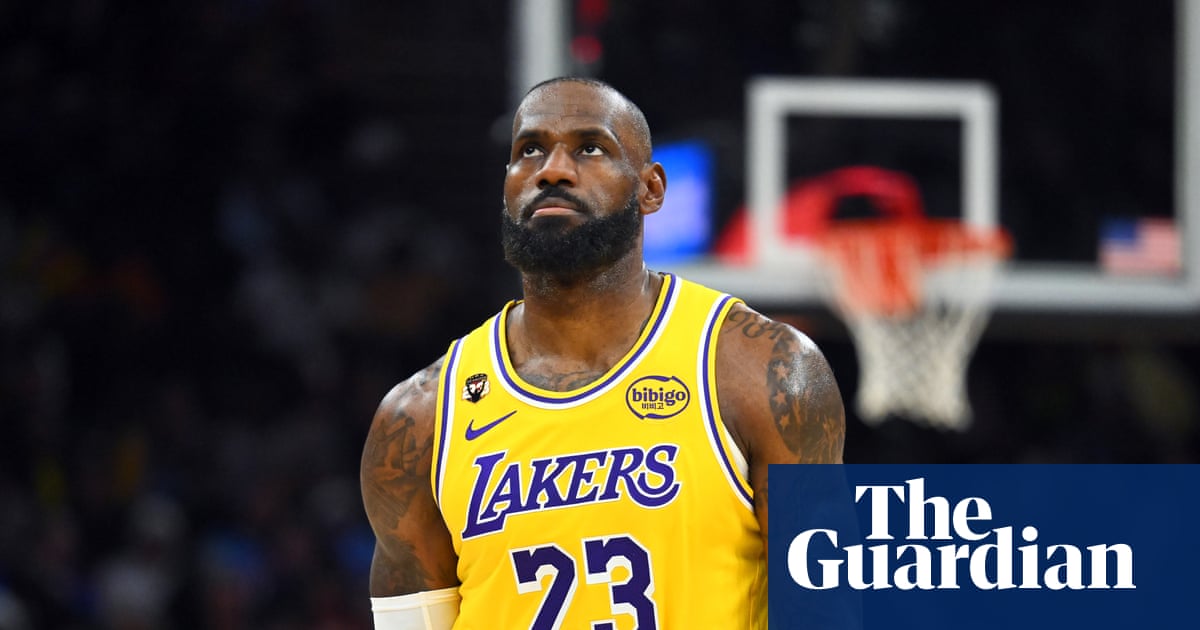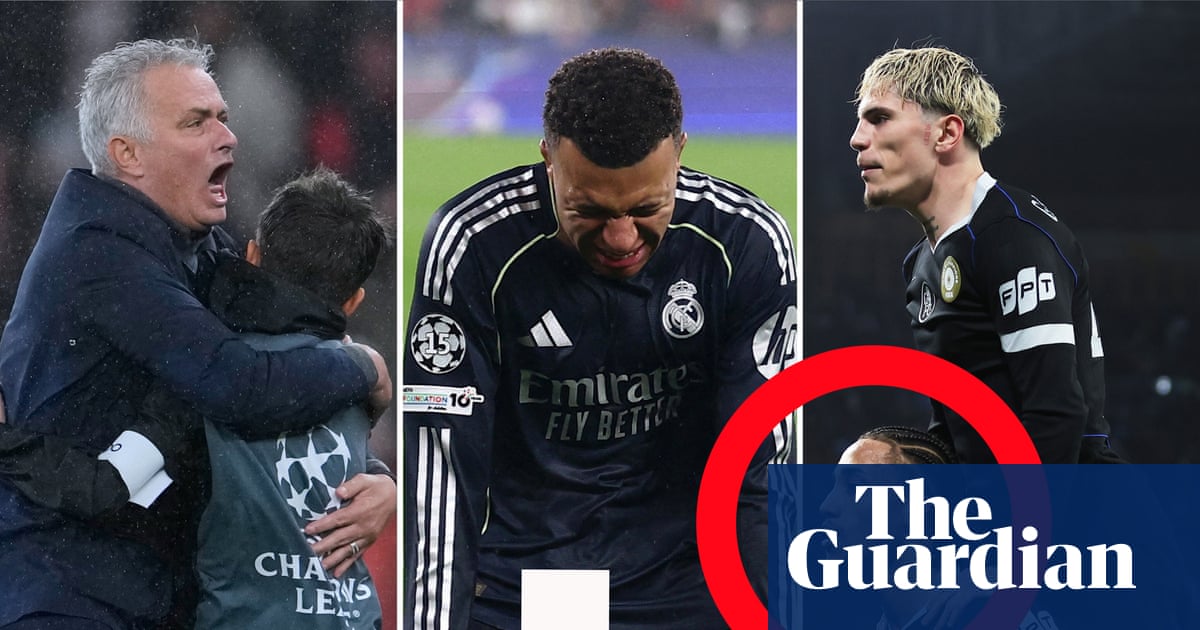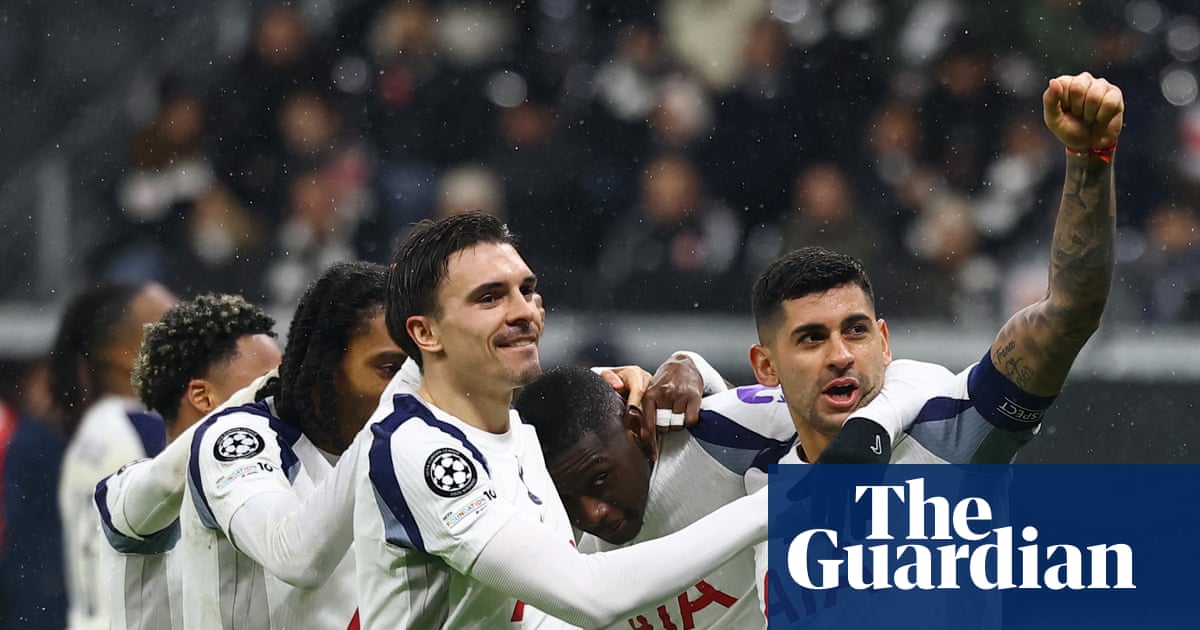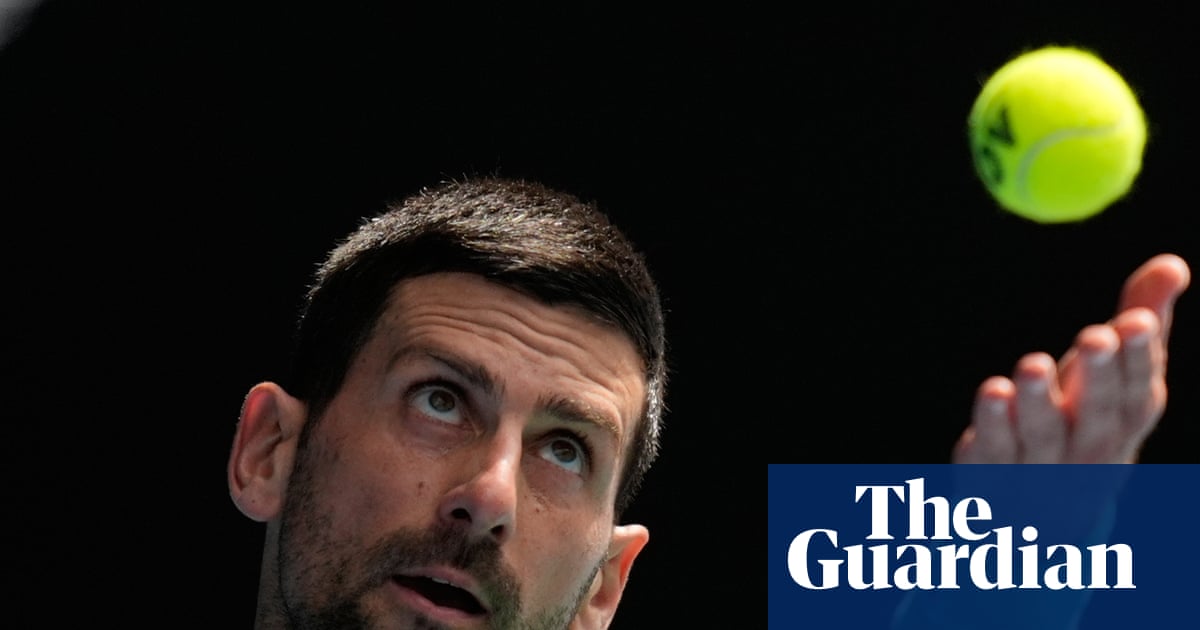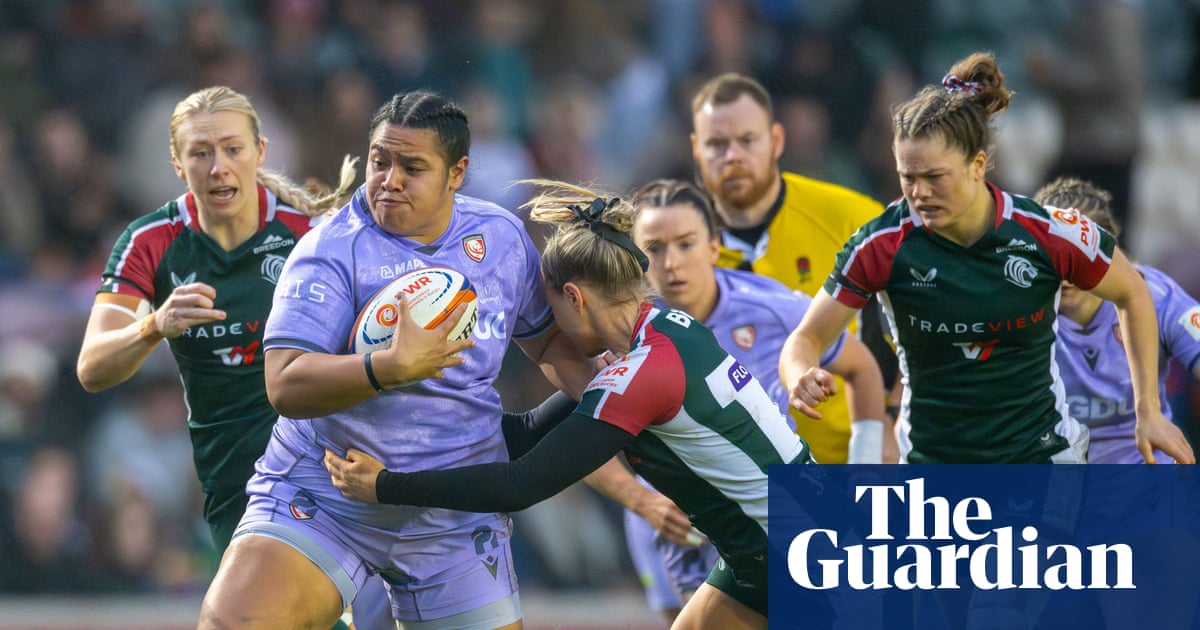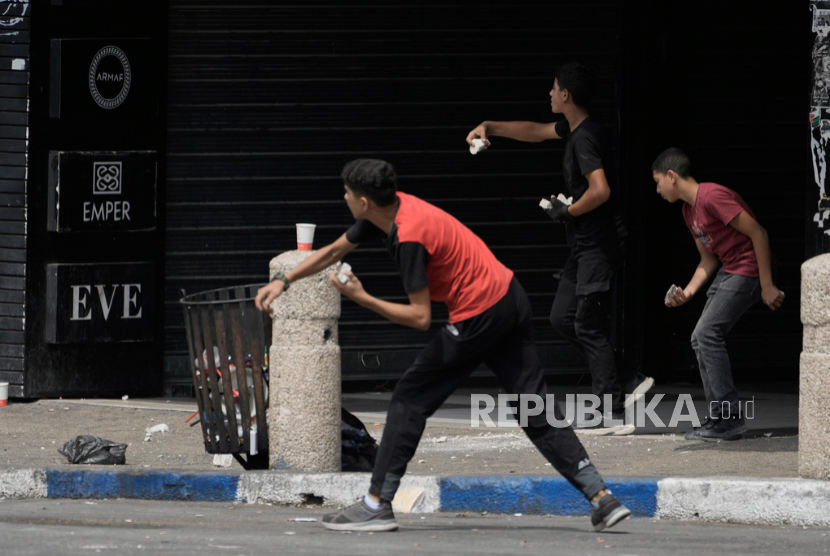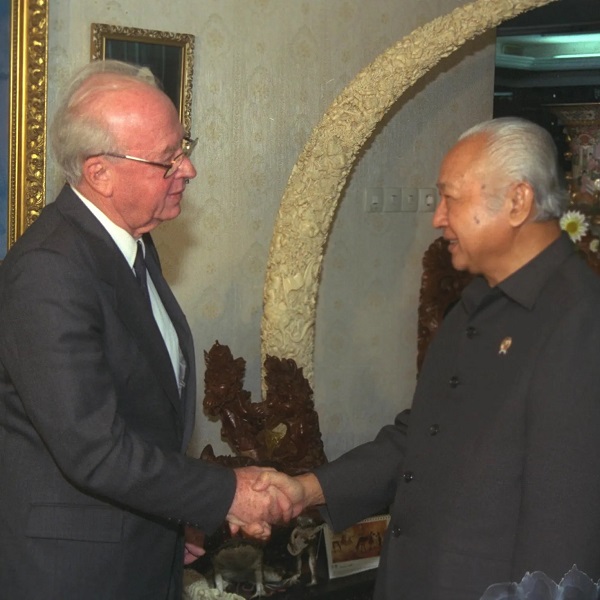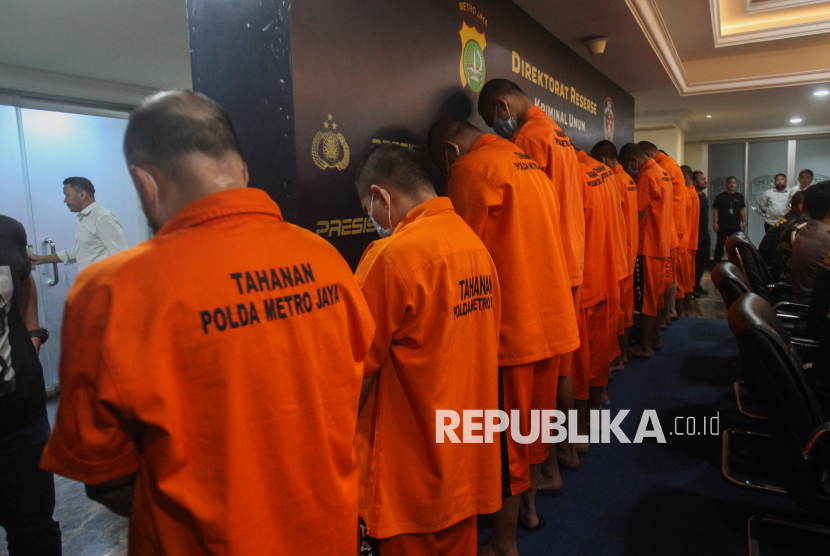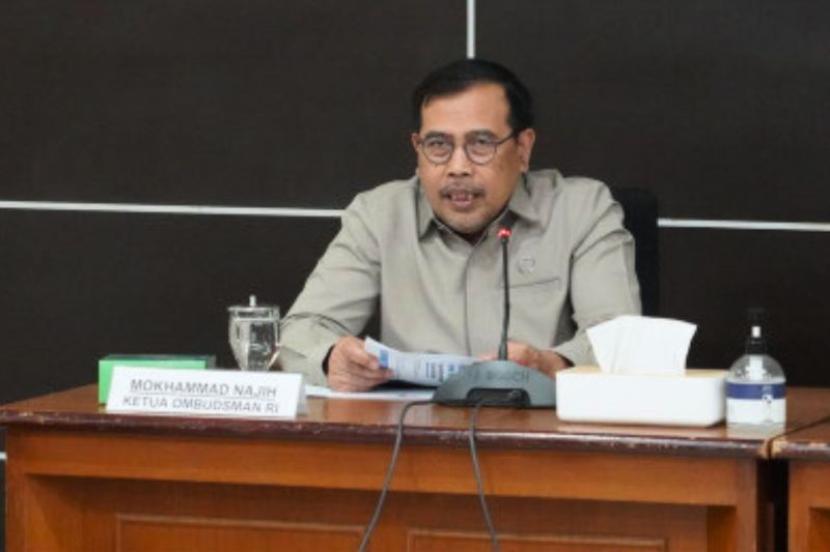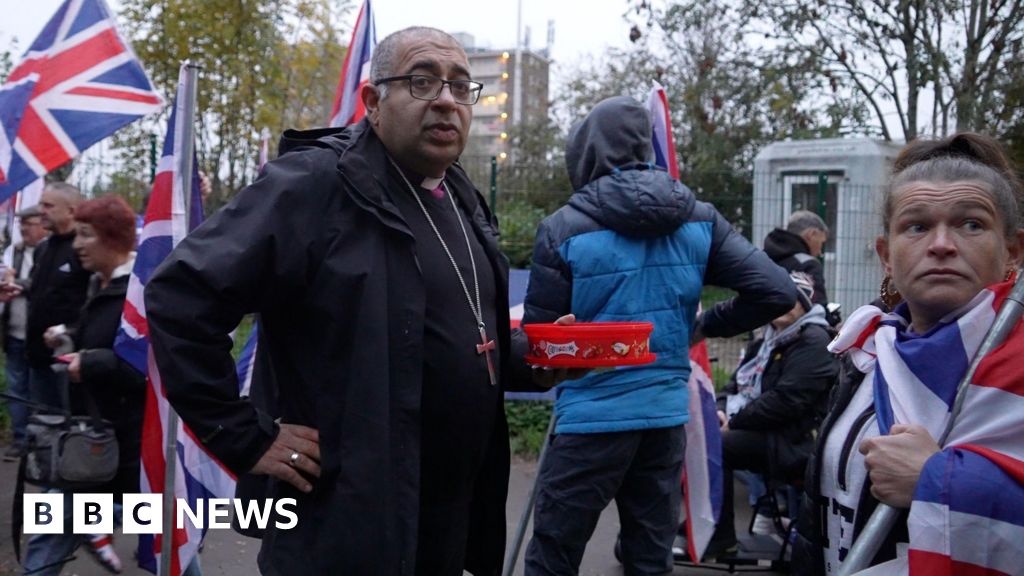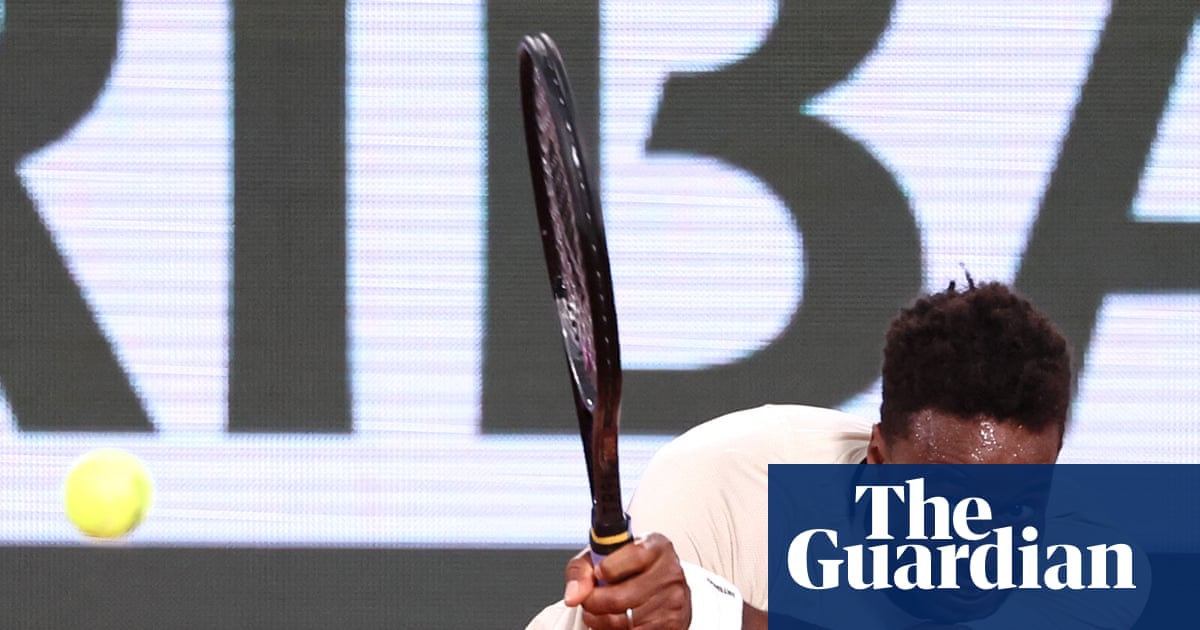“I told my teammates: ‘If I go on, I’ll score,’ and everybody laughed,” Ronald Araújo said but they weren’t laughing now. Actually, wait, no: they were laughing now. Laughing and shouting and swearing and scrambling to escape the bench, like someone had set fire to it. Someone like him: 6ft 3in and 15 stone of Uruguayan beef, tearing off his top and leaping over the boards advertising Kicking My Feet, fists thudding at his bare chest while Barcelona’s players chased him, Frenkie de Jong leapt on for a ride, and over on the far side of Montjuic the manager who wasn’t supposed to be there let rip. “It’s football, it’s emotion,” Hansi Flick said.
When it’s like this especially. On a weekend when the first 15 seconds of every game weren’t played at all and weren’t always broadcast either – La Liga distracting everyone from the 22-man standstill protests over their unilateral decision to go to Miami by encouraging cameras to look elsewhere and commentators to talk about something else – the best was instead saved for the final seconds when attention was actually on the pitch. And there it was all kicking off. Properly, this time.
Jan Oblak made an exceptional 89th-minute save to secure a 1-0 win for Atlético Madrid against Osasuna, Ante Budimir somehow stopped where he never is. Thibaut Courtois did the same for Real Madrid, denying Abu Kamara at the Coliseum on 95.40. Antony, who they call the GOAT, scored his first two goals since heading back across Triana Bridge to Betis, completing a comeback on 93 to draw 2-2 with Villarreal. And it was minute 89 when Carlos Soler might just have saved the Real Sociedad manager Sergio Francisco’s job and did cost Celta Vigo a first win, leaving them a seventh 1-1 instead. Before all that, there was the emergency striker rescuing Barcelona, Araújo sending everyone bananas on 92.27.
“I asked if he could play in that position,” Flick admitted, a plan occurring to him under pressure. Could he? “If I did, I’d score more goals,” Araújo said afterwards. And although a “nah, I’m joking” followed fast, just as it did when Gerard Piqué used to like saying the solution to those games when the clock just kept running and the ball just wouldn’t go in was to stick him up front sooner and when Sergio Ramos complained about getting bored at the back what with his “striker’s soul”, there was something in it. This time, at least, it was true.
Barcelona had needed it to be. With seven days to go until the Clásico and eight minutes to go until full-time in the other Catalan derby, they were drawing 1-1 with Girona. A gorgeous Pedri goal, out for a gentle stroll in the area, stepping past defenders and rolling the ball calmly through them all into the net, had given Barça a 1-0 lead. An outrageous overhead kick from Axel Witsel soon made it 1-1. And Girona should have taken the lead as well, wasting three clear chances in the first half that were exactly the way you imagine, Barcelona caught with the highest line since César Azpilicueta’s shorts. Now the second half was slipping away, and so too was the top of the table.
La Liga results
ShowReal Oviedo 0-2 Espanyol, Sevilla 1-3 Mallorca, Barcelona 2-1 Girona, Villarreal 2-2 Real Betis, Atlético Madrid 1-0 Osasuna, Elche 0-0 Athletic Club, Celta Vigo 1-1 Real Sociedad, Levante 0-3 Rayo Vallecano, Getafe 0-1 Real Madrid
Lamine Yamal and Pedri had gone, nothing left to give, and were now sitting silently on the second row of the bench. Raphinha, Ferran Torres and Robert Lewandowski hadn’t been there in the first place, sitting in the front row of the stands. Flick had used four substitutes – Fermín López had gone on, Roony Bardghji too – but there had been no way through. It was time for one more; it was time to send the big bloke on up front, the way Johan Cruyff used to do with José Ramón Alexanko, not afraid to play “like Everton” when he needed to, as one columnist put it. Except that wasn’t exactly the way it happened, and it almost didn’t happen at all, clock ticking past 90 with his sub hardly having a touch let alone a chance.
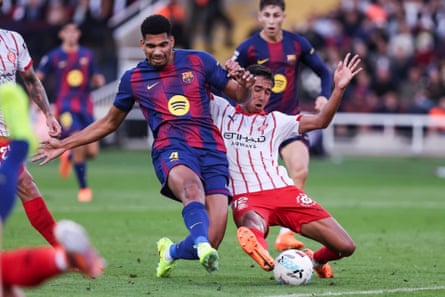
When the board went up, Flick was sent off for complaining that four added minutes weren’t enough, referee Jesús Gil Manzano flashing one yellow and standing there all make-my-day-punk, challenging the German to make him flash a second, which he did. And that, it seemed, was that. But it turned out Flick was wrong, and when the goal came after just two-and-a-half minutes, it wasn’t booted up to the big bloke or thrown into the mixer. Araújo had been a striker until he was 17, a player defenders would bounce off but also one who “would put my foot on the ball and everything” until he was sent further back, and this was more Lineker than lump it. All about anticipation and timing, a finish of finesse rather than physique, Araújo dashed across the front of three defenders, arriving by the near post to guide it low first time past Paulo Gazzaniga and in at the far post.
And then he was off, shirt left on the turf behind him. Watching from by the tunnel, down which he was supposed to have departed, Flick delivered his fist-on-forearm celebration – a “sleeve-cutter” or butifarra as they call it in Barcelona, named after the Catalan sausage. The subs came pushing and shoving their way out of the bench and flooding the technical area, Pedri and Lamine Yamal embracing in the shadows and the last out. Across the pitch they piled on to Araújo. When the whistle went, they came from the stands too, Torres and Raphinha and the rest celebrating in civvies, the intensity of it all eloquent. “Sometimes you have to win like this,” López said. Sometimes, in fact, it is good to, Flick suggested. And sometimes you just have to win, full stop.
Barcelona had needed that. They came into this weekend having been beaten by PSG, a better side than they are. Then they had been battered by Sevilla. They had not played well against Girona either: despite the win, Pedri said he wasn’t happy with how they had performed, rightly noting that they are failing to apply the pressure that makes the high line work. The doubts were accumulating, the absences too. The Clásico was coming up, the fear growing that if Kylian Mbappé could time his runs right this time, that line is more porous than ever. A draw against Girona would have put them on the edge, four points behind. Lose at the Bernabéu and it might not have been a stretch to say the title was out of reach already.
after newsletter promotion
But there was Araújo. He had needed it too, the warmth with which they went to him telling. That he started on the bench seemed telling too. Despite initially joining Barcelona’s B team, there has always been a sense of him being the least Barcelona of their defenders, a Uruguayan who for all the Brazilian influence admitted that he had to ask Xavi what, or who, the third man was; the player that Luis Enrique had identified as the one PSG could let have the ball and who had been sent off against them; a centre-back of extraordinary athleticism but who Flick seemed unsure about entrusting to lead a line that required coordination and precision ahead of recovery speed.
There had been injuries too, others making a case for inclusion in his absence, and an awareness that he was one of their few sellable assets. At times it has felt like it has been easy to scapegoat him, to profile him as just not quite right somehow, to overlook what he has done and make a target of him instead, to see pressure applied on him for reasons beyond just the way he plays. Not immune to that, he too had wondered if a departure might be best, an offer coming from Juventus. When he renewed his contract it came with a buyout clause that was not so much a deterrent as an invitation. At the end of the Super Cup final, Lewandowski put an arm around his shoulder and told him to stay, at least for now: there will be chances to play, he says; in the summer maybe you can think again.
In the summer, Iñigo Martínez went and the Uruguayan stayed, which didn’t end the doubts, the feeling that maybe he wasn’t as needed as he would like to be. Off the back of an international week when he didn’t travel, staying behind to work instead, Eric García and Pau Cubarsí still started ahead of him. Andreas Christensen was introduced before he was. Four men went first, but now in their time of need, the clock running down, there he was sent on a special mission: a striker again, back in touch with the boy he used to be, pulling on his shirt sure he was going to score and telling them so. “They laughed, but so it was,” Araújo said.
.png)
 3 months ago
48
3 months ago
48
